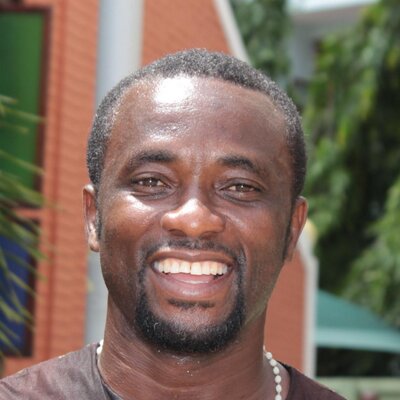“The mouse that removes the palm-nut that turns out to be the bait of a trap, would already have known that the palm-nut does not ripen on the ground.” – Nigerian proverb
We are all born with blazing idealism to live meaningfully and happily. That is what inspires our curiosity and adventurous attitude as toddlers. As we get older, we encounter a system that is so oppressive it does not make sense. We witness a handful of individuals with power commit countless abuses while the majority simply shrug their shoulders unconcerned. We observe many adults lie and pretend, and we wonder what they are afraid of. Interestingly, this becomes the foundation for the desire to make a difference in life.
Understandably, we witnessed adults who might have lived through an era that was so oppressive it instilled some cowardice in them. And often in their bid to help their children, they implore them to be the opposite of what they were. They tell them to be honest, and they encourage them to be interested in what happens around us and actively participate in events. What they forget is their failure to be role-models means their children are likely to follow in their footsteps. Where they do not follow in their footsteps, the confusion they experience between the talk of their parents and their walk creates in them a lukewarm attitude which affects their confidence.
It is perhaps not surprising that ‘Generation X’ in Africa is following in the footsteps of their parents. They continue to exhibit traits of fearfulness and apathy, which have culminated into an attitude reminiscent of the neo-colonialism preached by the first crop of leaders in Africa. All around us, the African elite is exploiting his or her own. They have merely stepped into the shoes of the colonisers and are amassing wealth instead of building their societies. They have found solace in the strategy of the colonisers and are propagating the ‘Babylon System’ more fiercely than the originators.
They have found a brilliant way to remove the chains from around the ankles of their people and yet keep them bound and dependant. They craftily point to freedom of association, of expression – and yet they chain the people in poverty. They have not just become the new ‘slave masters’, they have become better at the job than those who taught them.
Such is the headache of the African: their own relatives and friends are brutalising their souls. And they comfort them by telling them that there is a better life after death for marginalised people. But how can they see that through their tears? And if they truly believe there is life after death, why are they not sharing their wealth with everyone? Interestingly, they are always ranting about how much they care. Bob Marley was right in questioning them, “How can you be sitting there saying that you care, when every time we look around the people suffer in every way, everywhere?”
There are no easy answers, because the people we expect to care do not care. The marginalised claim they have been so indoctrinated they cannot think for themselves. The educated point blame at the very system they are managing and benefitting from as the cause of these challenges. All in all, we are in blind pursuit of nothing. The poor are becoming poorer, and the elite are becoming more egoistic. And it is because we do not want to be responsible for our actions. To make it worse we have adopted a strategy of seeking favours, knowing well that anyone who grants you favour will want to control you for all eternity. Would it not be better for all of us if we owned up to our weaknesses and utilised our strengths to build a better society for ourselves?
Change has always been the ray of optimism for our humanity. At the very minimum, evolutionary science has taught us that life and everything in it can and does change. This is a reminder to Africans that “we are not condemned to social conditions set in stone by some higher power that renders us powerless to evolve ethically, economically, culturally and socially; the way that fauna and flora evolve biologically”. We need to emancipate ourselves, but that can only happen when we change within ourselves. We need to evolve, and we need to become better people.
We need the better version of ourselves far more than we can ever imagine. Our hearts are beating for it, especially in our present day when relativism has become the new way of manipulating people to stop thinking and aspiring for greatness. We need to understand that change demands that we stop being certain and embark on a never-ending quest for the truth. That has been the attitude of those which have developed their societies and continue to dictate how the world should run…
__________________________________________________________________
Kodwo Brumpon is a partner at Brumpon & Kobla Ltd., a forward-thinking Pan African management consultancy and social impact firm driven by data analytics, with a focus on understanding the extraordinary potential and needs of organisations and businesses to help them cultivate synergies which catapult them into their strategic growth and certify their sustainability.
Comments, suggestions and requests for talks and training should be sent to him at kodwo@brumponand kobla.com










